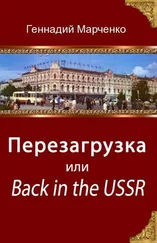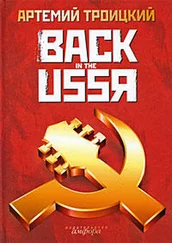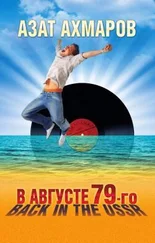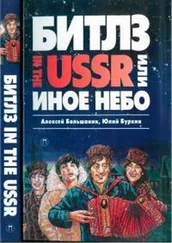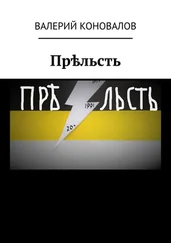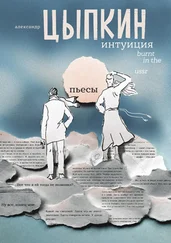When we return from the penitential march they make us pay for our night’s lodging and fine us each 25 roubles, except the two men who carried the banner. They’re excused five roubles of their fines, which no one begrudges.
After my release I go back to the labour exchange. I am hired by another Korean with a plantation in the mountains, but again on my return I drink away my pay before I can reach the railway station. It’s the same story all summer. I take jobs in Kuvasai and Kizil Kiya in Kyrgyzia. Finally, when the weeding season ends, I manage to reach the railway station without being diverted and settle down in the station buffet to wait for the Tashkent train. My disreputable appearance must have given me away: a cop comes over and hauls me off. Fortunately some foreigners are staying in Fergana so I don’t have to repeat the penitential march.
The police want to know why I haven’t paid my first fine. I’m still registered at the chemical plant so I say I’m waiting for my wages. The superintendent tells a policeman to escort me to my hostel to collect my passport, which they will hold until I pay off my fines. The policeman and I set off on foot. The man is so tired after his night shift that he lets me continue alone, making me promise to hand in my passport the next day. That’s the last the Fergana police see of me. I pick up my passport and head for Margilan.
At Margilan station an Uzbek buys me a ticket and in return I smuggle a caseload of tomatoes to Tashkent for him. I find that city in uproar after a spontaneous explosion of nationalism during a football match between the local Milk-Churners team and the visiting Ukrainian Miners. Rioting spreads into the streets after the game. The police and local militia are busy breaking up fights and beating up anyone they can find. Train passengers are warned not to walk into the town. I spend a few days in the station trying to find a way home. The conductors on Moscow-bound trains are unusually strict and won’t let me on without a ticket. At last a Kuibyshev train pulls in. I approach a young conductor standing on the platform.
“Hey mate, take me along with you.”
He looks me up and down: “Have you got any money?”
“Not a kopeck. If I had I would’ve bought a ticket.”
The lad laughs and asks sarcastically: “Would a ride as far as Kuibyshev suit you?”
“It would. Then I can catch a local train.”
“So three thousand kilometres isn’t far enough for you! Where is your final destination?”
“Chapaevsk,” I reply, looking around to see if I might try my luck elsewhere.
“You’re from Chapaevsk then?”
“Yes.”
“What part?”
“Bersol.”
“You’re kidding!”
“What’s the point of lying? The train’s about to leave and we’ll never see each other again.”
“Wait,” he says, “what street do you live on?”
“Clinic street.”
“Do you know anyone on Short Street?”
“Lyokha Pop”
“What about Lyuska Trepalina?”
“Everyone knows her.”
Lyuska is the local whore. She hangs around the hostel where I lived. I’ve only spoken to her a couple of times but that’s enough for the conductor to let me on board.
The train departs and I settle down in a window-seat. The endless steppe slides past, as smooth as bone, broken only by a dry shoreline that was once lapped by the Aral Sea. When we stop at desolate towns the conductor, whose name is Yura, does a roaring trade selling vodka and cigarettes to crowds on the platform.
“There’s no alcohol or tobacco in their shops,” he explains. “I have to give a cut to the station-master and chief conductor but I make enough. Have a drink.”
* * *
My friend Oleg from the Astrakhan camp asks me to come and stay with him. I sell some blood to help the Vietnamese victims of American aggression and buy a ticket on the steamer Sergei Uritskii , an old man of the Volga built in 1912. It stinks of dried Caspian roach and the over-ripe melons that are piled high in baskets on the upper deck blocking everyone’s way. It is pleasant to sit on the passenger deck in old wicker chairs under a canvas canopy. Cream silk curtains flap like sails through open windows. For two days and nights I gaze at the shoreline, mesmerised by the gleam of distant cities and hydro-electric power projects.
In Astrakhan I find Oleg living in a district built in the popular Cheryomushki style. Although he has an official job checking shop burglar alarms he earns his money in billiard halls. We settle into a routine. I take over his rounds while he goes off to play. After lunch I join him.
Pretending not to know Oleg, I bet on the outcome of the game. With a prearranged signal he lets me know how it will end. That way we always win. If he loses I collect money for backing his opponent; if he wins our takings are doubled. No one knows me in the town and we do not broadcast our friendship. All the same we don’t win much, just enough to feed ourselves and the family.
Oleg is on the wagon which is fortunate as drinking and billiards do not go together. Fights in billiard halls are common and so is cheating. When an apparently stronger player loses there’s always a post mortem which rarely ends peacefully. The winner often has to beat the money out of the loser. It is forbidden to play for money so Oleg and I have to be careful. If caught making bets we’d go straight back to prison.
Life would be fine apart from problems on the domestic front. Oleg and his wife Lily fight day and night. Their punches, slaps and screams end in no less violent reconciliations. The police have long since stopped responding to neighbours’ complaints. They know that by the time they arrive the combatants will be locked in such a tight embrace it will be impossible to prize them apart. If they manage to arrest Oleg then Lily will turn on them like a tigress. Once when they try to arrest her, Oleg dangles their daughter out of the window until the police let her go.
It is impossible to live in this atmosphere so after a month I decide to return to Chapaevsk. Before I leave, Oleg takes me to a village near the sea where we buy 1,000 dried bream for a fantastically low price. In Kuibyshev these fish are in great demand as an accompaniment to beer. I can sell them for enough money to support me for several months.
As luck would have it the Sergei Uritskii is waiting in dock. I manage to buy a ticket for a place on deck and board just at the last minute. As I am arranging my bags I hear a familiar voice.
“Vanya! Going back already? Didn’t you find your friend?”
It’s one of the waitresses, Asya, who I got to know on the journey down.“I did,” I reply, “but a husband and wife make one devil. I felt uncomfortable in the middle of their quarrels. I’m going home now to sell my fish.”
“But you have so many bags and no berth.”
I smile: “I’m alright. I’ll sleep under the stars again.”
Shyly Asya asks me to share her berth.
As the ship approaches Kuibyshev I ask for her address. She shakes her head. “It’s better not to raise hopes. They are too easily crushed.”
Asya is one of those rare women who are untouched by the filth of this world. I could have arrived home not only without the bream but without trousers, money or documents. Robbing me would have been as easy for Asya as spitting.
Back in Chapaevsk I decide not to sell my fish to the thieves and swindlers who run the market. Instead I give them to my uncle Volodya in return for an advance. By the end of the week I’m back on the bottle again and have forgotten all about the bream. As luck would have it I bump into Yura the conductor and am able to thank him properly for the ride.
I move into another hostel. It is built like pre-war barrack housing except it’s made of brick and has an indoor toilet. All day long snotty children play in the corridor under lines of grey underwear. Everyone knows which pair of underpants belongs to whom. If a brassiere falls on the floor you can pick it up, examine it and identify its owner by the way it is patched. Then you knock on her door: “Auntie Dusya, here’s your bra. The kids were using it as a football.”
Читать дальше
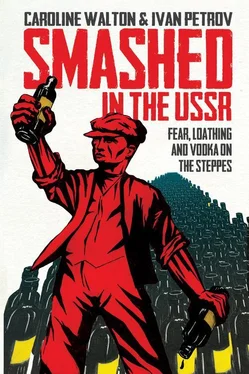
![Геннадий Марченко - Перезагрузка или Back in the Ussr. Книга 1. [СИ]](/books/53319/gennadij-marchenko-perezagruzka-ili-back-in-the-uss-thumb.webp)
